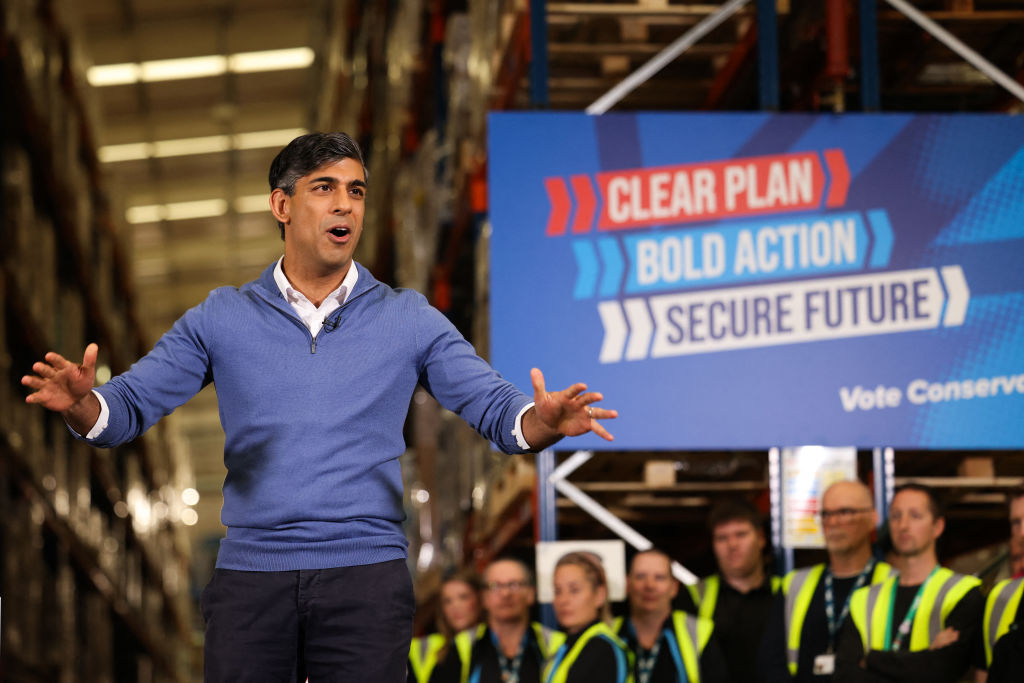LONDON — United Kingdom elections have a distinct vocabulary that draws on traditions of parliamentary democracy as well as modern political slogans and spin.
[time-brightcove not-tgx=”true”]
Read More: Midway Through the Ultimate Election Year: How the World Has Voted So Far
As voters go to the polls Thursday to elect a new government, the Associated Press deciphers some key words and phrases:
Battle bus
Luxury coaches rented by the main political parties to whisk politicians and journalists around the country for campaign visits during the five-week campaign. Labour has a red bus emblazoned with the word “change,” while the Conservatives’ blue bus promises a “clear plan, bold action, secure future.” The centrist Liberal Democrats’ yellow bus has taken leader Ed Davey on a headline-grabbing journey that has involved paddleboarding, rollercoaster-riding, Zumba and bungee-jumping.
Blue wall
A swath of seats in southern England, the wealthiest part of the country, where voters traditionally have supported the Conservative Party, whose traditional color is blue. With the Conservatives trailing in the polls, the centrist Liberal Democrats are targeting these affluent, socially liberal voters and hope to snatch some of the seats. See also: Red Wall.
Read More: How 14 Years of Conservative Rule in the U.K. Pushed Young People Into Poverty
Brexit
Britain’s departure from the European Union, triggered by a 2016 referendum and completed in 2020, was the country’s most seismic, and divisive, act in decades. Yet it has featured little in the election campaign. The Conservatives don’t want to acknowledge that many of the promised economic benefits haven’t materialized. Labour doesn’t want to reopen old wounds or alienate Brexit-backing voters. So Brexit has become something of a political Voldemort—that which mustn’t be named.
Read More: How Brexit Broke Britain and Revealed a Country at War With Itself
Coalition government
A rarity in the United Kingdom, a coalition government is one in which two or more political parties divide up ministerial posts, compromise on policies and agree to govern in concert. The Conservative-Liberal Democrat coalition of 2010-2015 was Britain’s first since World War II.
Read More: Britain Is Facing Its Most Seismic Election in Decades. So Why Does It Feel So Boring?
First past the post
Used to describe an electoral system in which the candidate with the highest number of votes in each district wins, even if that person doesn’t gain a majority of votes cast. The system tends to favor the two big parties, Conservatives and Labour, which historically have won a majority of seats in Parliament, while taking well under half the votes.
House of Commons
The lower house of Parliament has 650 seats, each representing a district of the U.K. The leader of the party with enough seats to command a majority—either alone or in coalition—becomes Prime Minister and leads the government.
House of Lords
The unelected upper house of Parliament scrutinizes legislation passed by the Commons. It’s made up of peers appointed for life by political parties, along with a smattering of judges, bishops and hereditary nobles. Its ballooning size and undemocratic nature are often criticized but reform has proved difficult.
Hung Parliament
An outcome in which no single party holds a majority of seats in the House of Commons. In that case, parties will try to forge agreements that will assemble a working majority, enabling a government to pass laws. If opinion polls giving Labour a double-digit lead are borne out on polling day, this is an unlikely result.
King’s Speech
An annual speech—read by the monarch at the ceremonial State Opening of Parliament—that is written by the government and outlines its legislative program. This year’s speech will be delivered by King Charles III on July 17, and will lay out the plans of either Labour leader Keir Starmer or Conservative leader Rishi Sunak.
Majority/minority government
A majority government is formed by a party that holds more than half the seats in the House of Commons. Minority government occurs when a party that doesn’t have a majority of seats governs alone, relying on support from smaller parties on a vote-by-vote basis. Minority governments tend to be short-lived—the most recent lasted from 2017 to 2019.
Marginal seat
Constituencies won by a small margin and thus more likely to switch hands in an election. The opposite is a safe seat.
Red wall
A string of seats in England’s Midlands and north once dominated by mining, steelmaking and other heavy industries that traditionally voted Labour, whose traditional color is red. After years of high unemployment and social decay, many of these voters switched to the Conservatives under Boris Johnson. Labour hopes to regain many of these seats Thursday.
Supermajority
An American term with no clear meaning in Britain, introduced into the U.K. election by the Conservatives in an attempt to shore up the party’s vote by warning that Labour could get untrammeled power if it wins too many seats in Parliament.
Swingometer
A fixture of the BBC’s election night coverage for decades, a pendulum-style representation of the percentage of voters who have shifted from one party to another, used to predict the outcome in parliamentary seats. Once an actual prop, it’s now delivered through digital graphics.
Tactical voting
Describes the practice of voters backing a party they wouldn’t usually support in order to defeat another candidate. There has been speculation this election could see high levels of tactical voting by centrist and left-leaning electors to oust Conservatives.

